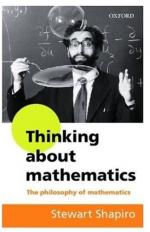|
This section contains 1,577 words (approx. 6 pages at 300 words per page) |

|
Overview
Mathematics is the study of the relationships among, and operations performed on, both tangible and abstract quantities. In its ancient origins, mathematics was concerned with magnitudes, geometries, and other practical and measurable phenomena. During the nineteenth century, mathematics, and an increasing number of mathematicians, became enticed with relationships based on pure reason and upon the abstract ideas and deductions properly drawn from those relationships. In addition to advancing mathematical methods related to applications useful to science, engineering, or economics (hence the term "applied mathematics"), the rise of the formalization of symbolic logic and abstract reasoning during the nineteenth century allowed mathematicians to develop the definitions, complex relations, and theorems of pure mathematics. Within both pure and applied mathematics, nineteenth-century mathematicians took on increasingly specialized roles corresponding to the rapid compartmentalization and...
|
This section contains 1,577 words (approx. 6 pages at 300 words per page) |

|


